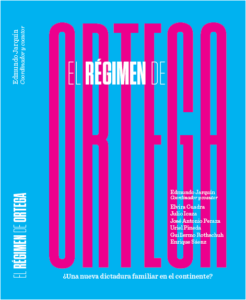Consolidating Power: Ortega’s Regime and Implications for Nicaraguan Democracy
Following the triumph of the Sandinista Revolution and ousting of the Somoza regime in 1979, Daniel Ortega assumed the presidency of Nicaragua until he was defeated at polls by Violeta Chamorro in 1990. Ortega regained the office in the 2006 elections and was re-elected president in 2011. His government has become increasingly authoritarian and has effectively suppressed opposition parties. But with a record of steady economic growth and relatively low levels of crime and violence, he remains a popular president with a high approval rating. Now, campaigning for his third consecutive term, with his wife Rosario Murillo as his running mate, he is expected to easily win re-election over his fractured rivals.
We hope you can join us for a lively and informative discussion on Nicaraguan politics and society with two of the country’s prominent opposition leaders: Edmundo Jarquín, former presidential candidate and political analyst, and Enrique Sáenz, who served in the National Assembly from 2007 to 2012. They will present the findings of their recent book, El régimen de Ortega: ¿una nueva dictadura familiar en el continente?, a critical examination of Ortega’s rule and its evolution over time—with a wide-ranging conversation to follow.
The event will be held in Spanish.
Speakers:
- Edmundo Jarquín, former presidential candidate
- Enrique Sáenz, former member of the National Assembly
Comments:
- Manuel Orozco, Director of the Migration, Remittances and Development Program at the Inter-American Dialogue
Moderator:
- Michael Shifter, President of the Inter-American Dialogue




















